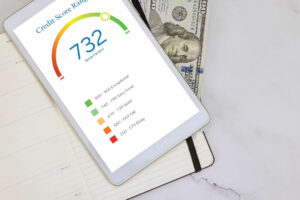Great job building up your credit score! After all that hard work, you’re probably wondering how you can maintain your credit. Read below to learn more!
Key takeaways
- Maintaining good credit is easier than repairing a low score.
- Be strategic with credit usage to keep a high score.
- Consider seeking advice from a reputable credit professional if having trouble.
- Stay on top of credit activity and monitor credit report regularly.
1. Pay your bills on time
When it comes to late or missed payments, prevention is key to protecting your score. Paying bills on time won’t always boost your score, but any missed payments can hurt your score. Some late payments will stay on your credit history long after you’ve taken care of them. And you definitely don’t want any late payments going to collections, as this can do serious damage to your credit.
2. Check your credit report
You get a free credit report every year, so you should definitely take advantage of it. It’s recommended that you get a report from all three credit bureaus (Experian, Equifax, and Transunion), because your score may vary between the three different bureaus. If you notice any errors on your credit report, consider reaching out to a credit professional before disputing them, especially if you’re in the process of applying for a loan.
3. Be on the lookout for unusual activity
Unfortunately, there are criminals out there who may try to steal your information. If your card is lost or stolen, report this immediately. Each month, you should review your billing statements so you can quickly catch any unusual activity. For online accounts that hold your card information, use strong passwords and keep those passwords safe. Avoid giving out any personal information over the phone, especially if you didn’t initiate the call.
4. Keep old credit cards open
As long as these cards aren’t costing you too much in annual fees, you’ll want to keep these accounts open. One of the factors affecting your credit score is the length of your credit history. Building up a credit history is good for establishing yourself as a low-risk borrower. Closing old credit cards can wipe the slate clean on this credit history.
5. Be careful when opening new credit accounts
In addition to your past credit history, new credit activity also affects your score. If you open several new accounts in a short period of time, this can make you look like a higher risk as a borrower. When protecting your credit, you want to avoid any activity that can be seen as impulsive.
6. Maintain a low credit card balance
After building up your credit, you probably know that keeping your credit card debt low is important. This is just a reminder to stay on top of it!
Remember, you want to keep your credit utilization low, preferably at 30% or less. So if, for example, you have a total credit limit of $1,000 across all your credit accounts, then you don’t want to rack up more than $300 in debt.
7. Look over your budget
Now that you’ve built up a high credit score, a great way to protect your credit is to prevent yourself from racking up too much debt. It’s possible that you’ve started to let your good spending habits slip a little. For example, you could be spending too much on subscriptions that you don’t use, or maybe you’ve been ordering take out a few too many times each month. Keep an eye on these minor expenses, because those small costs can easily add up on your monthly credit card bills.
The bottom line
It’s much easier to maintain good credit than it is to repair a low score. As long as you’re thoughtful and strategic with your credit usage, then keeping a high credit score shouldn’t be too difficult. However, if you’re having trouble, consider reaching out to a reputable credit professional for advice.













